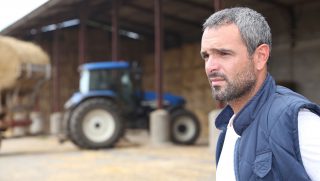Yesterday President Trump met with Brazilian President Jair Bolsonaro to discuss many topics, including agriculture. Some ag groups where happy to see the agreements reached by the two presidents, others are worried about what it could mean for American agriculture.
U.S. Wheat Associates and the National Association of Wheat Growers welcome the announcement by President Trump and Brazilian President Jair Bolsonaro that Brazil has agreed to implement a duty-free tariff rate quota (TRQ) for wheat, a longstanding obligation under Brazil’s World Trade Organization commitments. This agreement opens an annual opportunity for U.S. wheat farmers to compete on a level playing field for 750,000 metric tons (about 28 million bushels) of wheat under the TRQ.
Brazil was the largest wheat importer in Latin America and the fourth largest in the world in marketing year 2017/18. Most imports originate duty-free from the Mercosur countries of Argentina, Paraguay and Uruguay. Wheat from all other origins requires payment of a 10 percent duty. Brazil agreed to open the TRQ to all origins, including the United States, in 1995, but then notified the WTO that it wanted to remove the TRQ. Those negotiations were never concluded. Brazil did open the TRQ temporarily in 2008, 2013, and 2014 when there was a shortage of wheat within Mercosur. During those years U.S. wheat made up more than 80 percent of imports from outside Mercosur.
“This is a big win for U.S. wheat farmers, the Trump Administration, and members of Congress who have pushed for action on this issue,” said Ben Scholz, NAWG President and a wheat farmer from Lavon, Tex. “I’m glad to see Brazil fulfill its commitment and look forward to a stronger trading relationship between us. When countries remain in compliance with the WTO, like we see here, it creates a level playing field for wheat for both countries.”
However, the United States Cattlemen’s Association is strongly opposed to compromising the health of the domestic cattle herd for the sake of increased beef exports, especially from a country marred by scandal.
From May 15 to June 2, 2017, the USDA’s Food Safety and Inspection Service conducted an audit of the Brazilian beef industry due to a high number of rejected exports from the country attempting to make their way into our borders. In total, over 1.9 million pounds of Brazilian beef product has been rejected due to “public health concerns, sanitary conditions, and animal health issues.”
Following the release of this audit, the concerns of U.S. cattle producers were validated as Brazil failed in several categories regarding its trade with the U.S., including: oversight; statutory authority, food safety and additional consumer protection regulations; sanitation; hazard analysis and critical control points; chemical residue testing programs, and microbiological testing programs.
Aside from protecting the health of the domestic cattle herd, USCA is also concerned that the reopening of U.S. markets to Brazilian beef will only continue to unveil consumer safety concerns.
In 2017, it was revealed that Brazilian meat inspectors had been caught accepting bribes to allow expired meats to be sold and sanitary permits to be falsified.
USCA remains strongly opposed to any reopening of beef trade with Brazil. The final audit report included horrific examples of a lack of equivalent food safety standards and protocols, at even the most basic level. Brazil has consistently shown to be a bad actor in the global marketplace.
After yesterday’s meeting, Trump is looking forward to better access for American wheat and pork exports. There is still a possibility of restarting sales of Brazil beef to the United States, only time will tell what happens to the beef imports.

